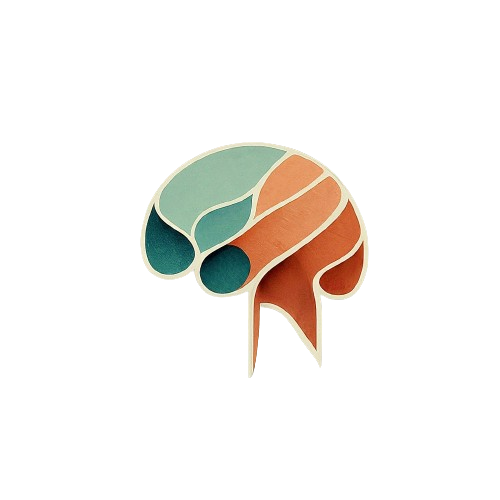Bipolar disorder is a complex mental health condition characterized by dramatic shifts in mood, energy, and activity levels. These shifts, known as manic and depressive episodes, can significantly impact an individual’s daily life. But how long do these episodes typically last? In this comprehensive guide, we’ll explore the duration of manic and depressive episodes, factors that influence their length, and strategies for managing these mood swings.
The Nature of Bipolar Episodes: No Set Timeframe
One of the most challenging aspects of bipolar disorder is the unpredictable nature of its episodes. There is no one-size-fits-all answer to how long manic or depressive episodes last. The duration can vary greatly from person to person and even from episode to episode within the same individual. However, understanding the general patterns and factors that influence episode length can help both patients and caregivers better manage the condition.
Manic Episodes: A Closer Look
Manic episodes are periods of abnormally elevated mood, energy, and activity levels. They are a defining feature of bipolar I disorder and can have a significant impact on an individual’s life.
Duration of Manic Episodes
- Typical Length: Manic episodes typically last at least 7 days, but can persist for several months if left untreated.
- Diagnostic Criteria: To meet the diagnostic criteria for bipolar I disorder, a manic episode must last at least 7 days or require hospitalization.
- Variability: Some individuals may experience shorter episodes, while others might have prolonged periods of mania lasting several months.
Factors Influencing Manic Episode Duration
- Treatment Adherence: Proper medication and therapy can significantly shorten the duration of manic episodes.
- Severity of Symptoms: More severe manic symptoms may lead to longer episodes.
- Individual Biology: Each person’s brain chemistry and genetic makeup can influence episode length.
- Environmental Factors: Stress, sleep disruptions, and substance use can prolong manic episodes.
Depressive Episodes: Understanding the Low Points
Depressive episodes are periods of persistent low mood, decreased energy, and loss of interest in activities. They can be equally, if not more, debilitating than manic episodes.
Duration of Depressive Episodes
- Typical Length: Depressive episodes often last longer than manic episodes, typically ranging from two weeks to several months.
- Diagnostic Criteria: To meet the criteria for a major depressive episode in bipolar disorder, symptoms must persist for at least two weeks.
- Chronic Depression: In some cases, individuals may experience prolonged depressive episodes lasting a year or more.
Factors Influencing Depressive Episode Duration
- Treatment Response: Some individuals may respond quickly to treatment, while others might experience treatment-resistant depression.
- Comorbid Conditions: The presence of other mental health conditions can complicate and prolong depressive episodes.
- Social Support: Strong social connections and support systems can help shorten the duration of depressive episodes.
- Lifestyle Factors: Regular exercise, healthy diet, and good sleep habits can influence the length of depressive episodes.
Rapid Cycling: When Episodes Come and Go Quickly
For some individuals with bipolar disorder, mood episodes can occur more frequently, a phenomenon known as rapid cycling.
Understanding Rapid Cycling
- Definition: Rapid cycling is diagnosed when an individual experiences four or more distinct mood episodes within a 12-month period.
- Episode Duration: In rapid cycling, individual episodes may be shorter but occur more frequently.
- Prevalence: Approximately 10-20% of people with bipolar disorder experience rapid cycling at some point.
Types of Rapid Cycling
- Ultra-Rapid Cycling: Mood shifts occur within days or weeks.
- Ultra-Ultra Rapid Cycling: Also known as ultradian cycling, where mood shifts occur within a single day.
Factors Affecting Episode Duration
Several factors can influence how long manic and depressive episodes last:
- Type of Bipolar Disorder:
- Bipolar I: Typically experiences longer manic episodes.
- Bipolar II: May have shorter hypomanic episodes but longer depressive episodes.
- Age of Onset:
- Earlier onset may be associated with more frequent and potentially longer episodes.
- Treatment History:
- Consistent treatment over time can lead to shorter, less severe episodes.
- Lifestyle Factors:
- Sleep patterns, stress levels, and substance use can all impact episode duration.
- Seasonal Changes:
- Some individuals experience seasonal patterns in their episodes, with manic episodes more common in spring and summer.
- Life Events:
- Major life changes or stressors can trigger or prolong episodes.
The Impact of Episode Duration on Daily Life
Understanding the potential duration of manic and depressive episodes is crucial for several reasons:
- Planning and Preparation: Knowing that episodes can last for extended periods helps individuals and their support systems prepare for potential disruptions.
- Treatment Expectations: Setting realistic expectations for treatment outcomes can improve adherence and reduce frustration.
- Work and Relationships: Recognizing the potential long-term nature of episodes can help in managing work responsibilities and maintaining relationships.
- Self-Care Strategies: Developing long-term self-care plans becomes essential when episodes may persist for months.
Strategies for Managing Episode Duration
While the duration of bipolar episodes can be unpredictable, there are strategies to help manage and potentially shorten their length:
- Medication Adherence: Consistently taking prescribed medications is crucial for stabilizing mood and preventing prolonged episodes.
- Therapy: Regular psychotherapy, such as Cognitive Behavioral Therapy (CBT) or Interpersonal and Social Rhythm Therapy (IPSRT), can help manage symptoms and reduce episode duration.
- Mood Tracking: Keeping a mood diary can help identify early warning signs of episodes, allowing for prompt intervention.
- Lifestyle Management:
- Maintaining a regular sleep schedule
- Engaging in regular exercise
- Practicing stress-reduction techniques like mindfulness or meditation
- Avoiding alcohol and recreational drugs
- Building a Support Network: Having a strong support system can provide early intervention and help during episodes.
- Creating a Crisis Plan: Developing a plan for managing severe episodes can help reduce their duration and impact.
The Role of Professional Help
Professional medical help is crucial in managing bipolar disorder and influencing episode duration:
- Proper Diagnosis: Accurate diagnosis is the first step in receiving appropriate treatment.
- Medication Management: Psychiatrists can adjust medications to find the most effective combination for each individual.
- Therapy: Mental health professionals can provide valuable coping strategies and support.
- Monitoring: Regular check-ins with healthcare providers allow for timely adjustments to treatment plans.
- Education: Healthcare professionals can provide valuable information about managing bipolar disorder and its episodes.
Research and Future Directions
Ongoing research continues to shed light on bipolar disorder and episode duration:
- Biomarkers: Scientists are exploring biological markers that might predict episode onset or duration.
- Personalized Medicine: Tailoring treatments based on individual genetic and biological factors may lead to more effective management of episode duration.
- Novel Treatments: New medications and therapies are being developed to target specific aspects of bipolar disorder.
- Technology Integration: The use of smartphones and wearable devices for mood tracking and early intervention is an area of active research.
Unpredictable Nature of Bipolar Episodes
While the duration of manic and depressive episodes in bipolar disorder can vary greatly, understanding the factors that influence their length is crucial for effective management. There may be no set timeframe for these episodes, but with proper treatment, support, and self-care strategies, individuals with bipolar disorder can work towards minimizing the impact and duration of mood swings.
Remember, bipolar disorder is a chronic condition, but it is manageable. If you or a loved one is struggling with bipolar disorder, don’t hesitate to seek professional help. With the right combination of medication, therapy, and lifestyle adjustments, it’s possible to reduce the frequency and duration of episodes and lead a fulfilling life.
By staying informed, adhering to treatment plans, and maintaining open communication with healthcare providers, individuals with bipolar disorder can navigate the unpredictable nature of their condition and work towards achieving greater stability and well-being.



